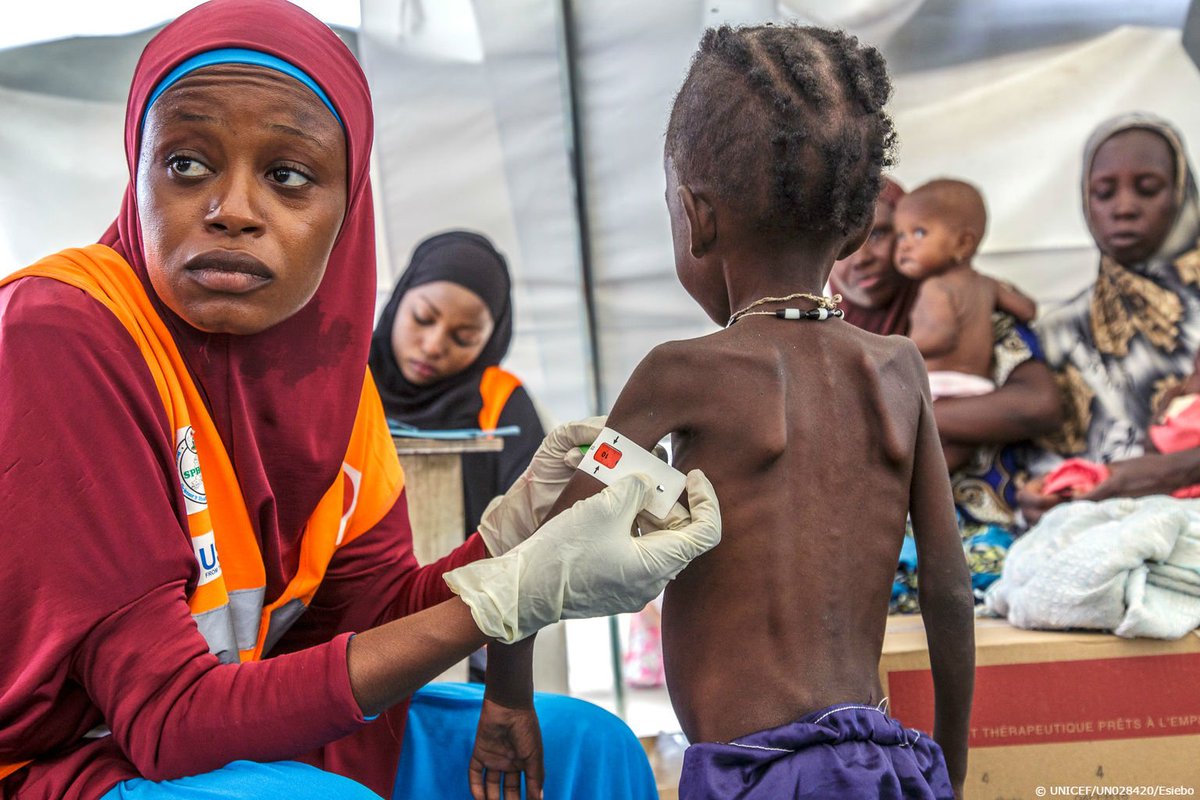Political parties commit to nutrition ahead of polls
At least seven of the 91 political parties going to the polls on February 16 have committed to bring attention to nutrition problems in the country. It comes amidst concern that the prevalence of severe acute malnutrition is increasing across the country. Up to 24 in 1,000 children suffer severe acute malnutrition in Kaduna, the […]

Malnutrition
At least seven of the 91 political parties going to the polls on February 16 have committed to bring attention to nutrition problems in the country.
It comes amidst concern that the prevalence of severe acute malnutrition is increasing across the country.
Up to 24 in 1,000 children suffer severe acute malnutrition in Kaduna, the highest in the country, compared to 19 in 1,000 in Kwara.
At a dialogue, the parties committed to put nutrition “on the front burner of political activism”. That will require them to fashion policies in support of nutrition, or write it into their manifesto.
“We will want a situation where the policies can be done professionally, to have them included in the constitution and we will comply,” said Sam Eke, presidential candidate and national chairman of Green Party of Nigeria.
“I just got to learn there are 2.6 million children with malnutrition, and I had never know that,” said Nsebor Nseobong, of the Restoration Party.
“We don’t have this in our manifesto, we only have health.”‘
Latest figures indicate some 2.6 million children are affected by severe acute malnutrition nationwide, but only around 672,000 are on treatment.
Funding for ready-to-use therapeutic food (RUTF—a high-energy, high-protein paste) use to treat acute malnutrition remains low; domestic funding remains low for nutrition and sites for treatment of acute malnutrition; nutrition itself is not “fully integrated” into primary health care and budget, according to the Civil Society Legislative Advocacy Centre (CISLAC).
“With malnutrition rates currently declining at an annual average rate of just 3.1 percent, it is worrisome that Nigeria is not on track to achieve the SDG target of a 40 percent reduction of stunting by 2025, for which the rate of decline must increase to 5.5 percent,” said Auwal Musa, executive director of the centre.
The centre is implementing an advocacy project to engage stakeholders on nutrition.
“There were no civil society organisations interested in moving nutrition forward. Now, we are engaging political parties, especially before election,” said Dr Chris Isokpunwu, head of nutrition at the federal health ministry.
Uchenna Okorie, national welfare adviser of the Young Progressives Party, said, “Nigerian children are an absolute priority to YPP. Whatever will promote their general welfare—issues of children is not an exception.”
